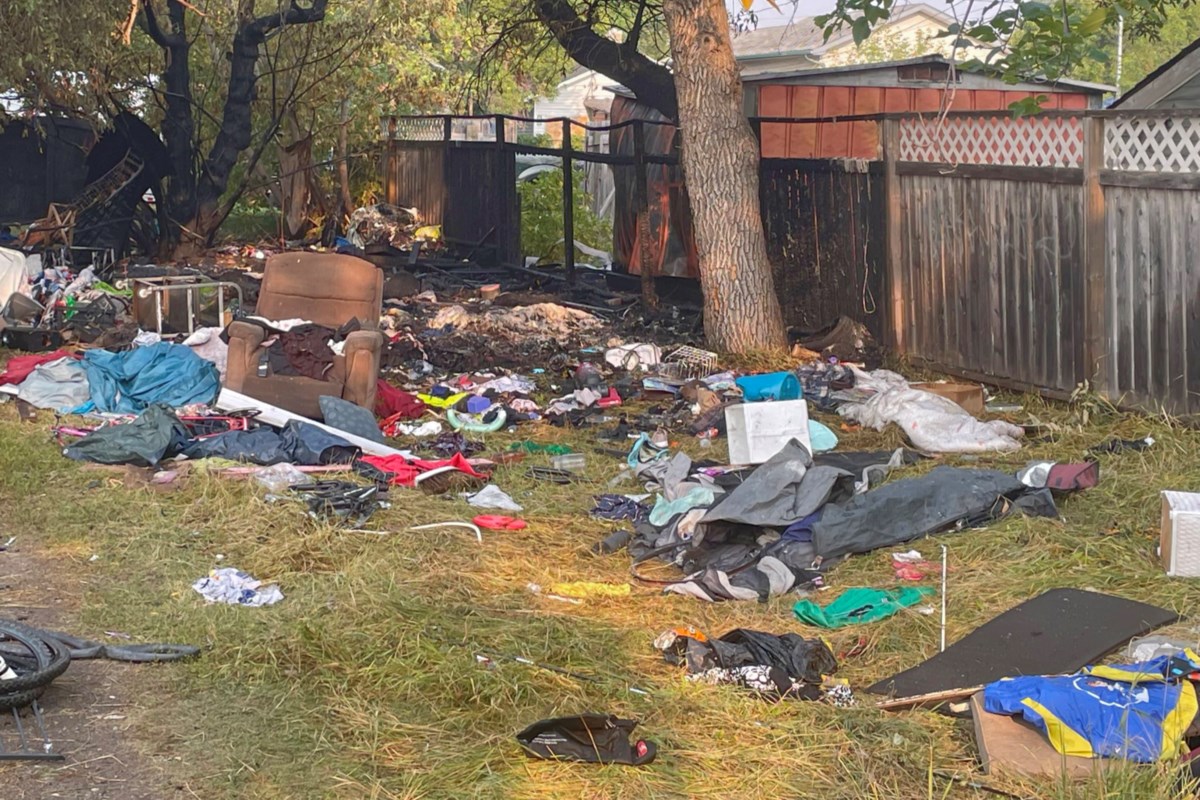Ontario municipalities had 1,400 homeless encampments last year
It's time for the province to provide some guidance on the issue, the AMO says
Author of the article:Canadian Press
Canadian Press
Allison Jones
Published Aug 14, 2024 • Last updated 20 hours ago • 3 minute read
Cities and towns across Ontario saw at least 1,400 homeless encampments in their communities last year, according to the Association of Municipalities of Ontario, which is asking the province for guidance on how to handle them, as well as more help to house and support people.
The number comes from an AMO survey of municipal service managers and is contained in a policy paper the association has released in advance of their conference next week, during which it is hoping for some commitments from Ontario.
“While municipalities did not create the homelessness crisis, they are being forced to manage it without the resources or tools to sufficiently respond,” the association wrote.
“Municipalities are often caught balancing the important needs of unsheltered people living in encampments, who deserve to be treated with empathy and respect, and a responsibility to ensure our communities are safe and vibrant places for all residents.”
Several municipalities have sought injunctions in order to deal with encampments, with mixed results, and it’s time for the province to provide some guidance on the issue, AMO says.
Kingston is one city that has turned to the courts, and Mayor Bryan Paterson said it’s expensive, time consuming, divisive, and not a good solution.
“How do we navigate these competing interests, these challenging, complex social and health issues that we see, in a way that balances those off?” he said in an interview.
“We’re looking for the province to engage on this issue, to weigh into it, and to help municipalities with that balance.”
The municipalities are also asking the province for more help to provide the people who end up in encampments with housing and health-care supports. More supportive housing, for example, is urgently needed, municipalities say.
The deeply affordable housing includes on-site resources, such as for mental health and addictions, and Ontario needs tens of thousands more units, AMO says.
“We know what the solutions are,” Paterson said.
“It’s street outreach and low-barrier shelters, and then it’s treatment, and then it’s supportive housing. So we know what those solutions are. The problem is municipalities do not have the resources or the expertise to be able to deliver those services.”
AMO is also calling on the province to let people receiving welfare or disability support payments collect shelter benefits, even if they are homeless, which would boost their income by about $400 to $500 a month.
Finance Minister Peter Bethlenfalvy said he will continue to work with municipalities, including on homelessness, and said he has 35 meetings scheduled over two days of the conference.
“We’re going to continue to have robust conversations and talk about the shared priorities that we have of course, homelessness, mental health and addiction, building more homes, building infrastructure,” he said.
A spokesperson for Municipal Affairs and Housing Minister Paul Calandra said the province is spending $700 million a year on community and supportive housing, and is giving Toronto and Ottawa more than $240 million for shelter and homelessness supports.
Justine Teplycky also noted that the province’s spring budget included an additional $396 million over three years for mental health and addictions services.
“We continue to call on the federal government to step up, pay their fair share and take more responsibility for the consequences of their policies that have escalated the number of individuals facing homelessness,” she wrote in a statement.
On the federal side, AMO notes the parliamentary budget officer has said that as part of the National Housing Strategy, the government puts about $561 million a year toward homelessness programs, but a further $3.5 billion per year would be required to reduce chronic homelessness by 50 per cent.
The Liberal government’s spring budget announced an additional $250 million for addressing encampments, and AMO is urging Ontario to match that.
Housing, Infrastructure and Communities Minister Sean Fraser’s office did not return a request for comment.
Several municipalities have sought injunctions in order to deal with encampments, with mixed results, and it's time for the province to provide some guidance on the issue, AMO says.

torontosun.com

apple.news

apple.news











